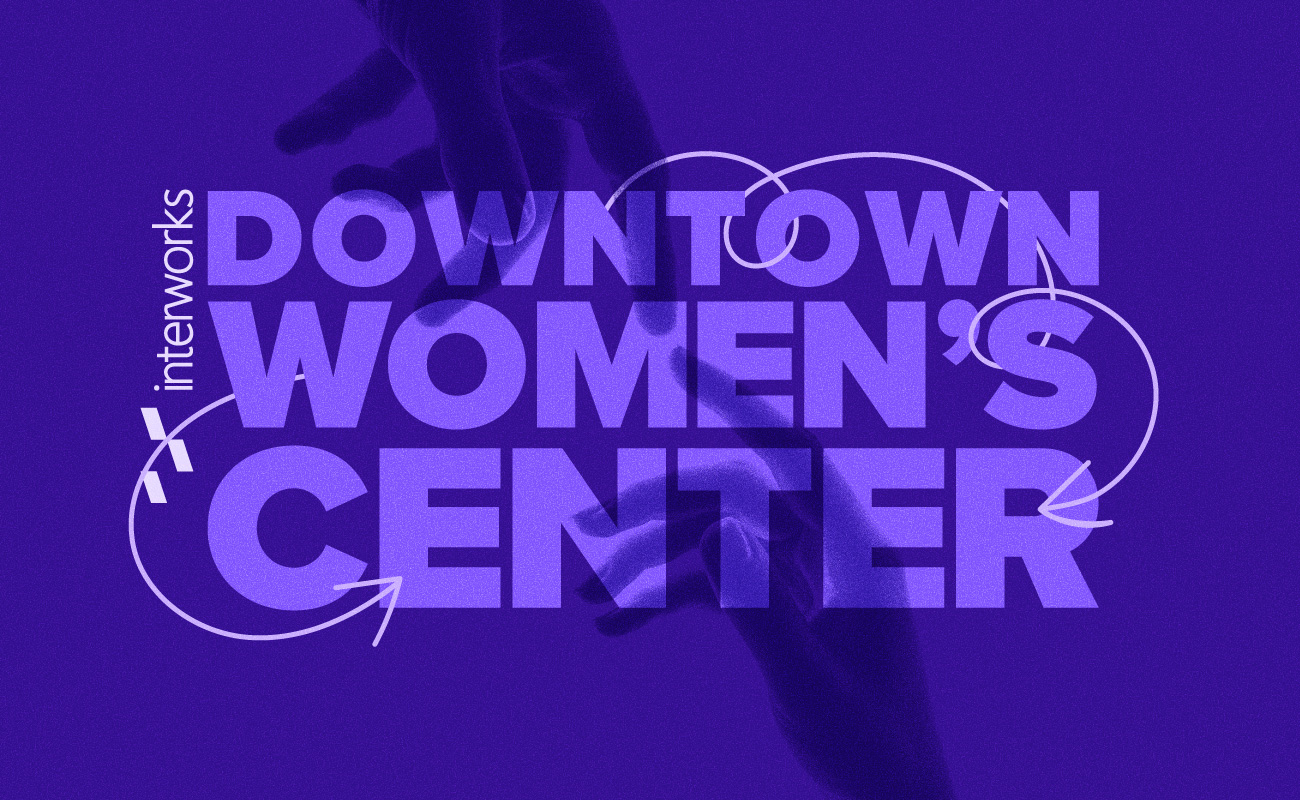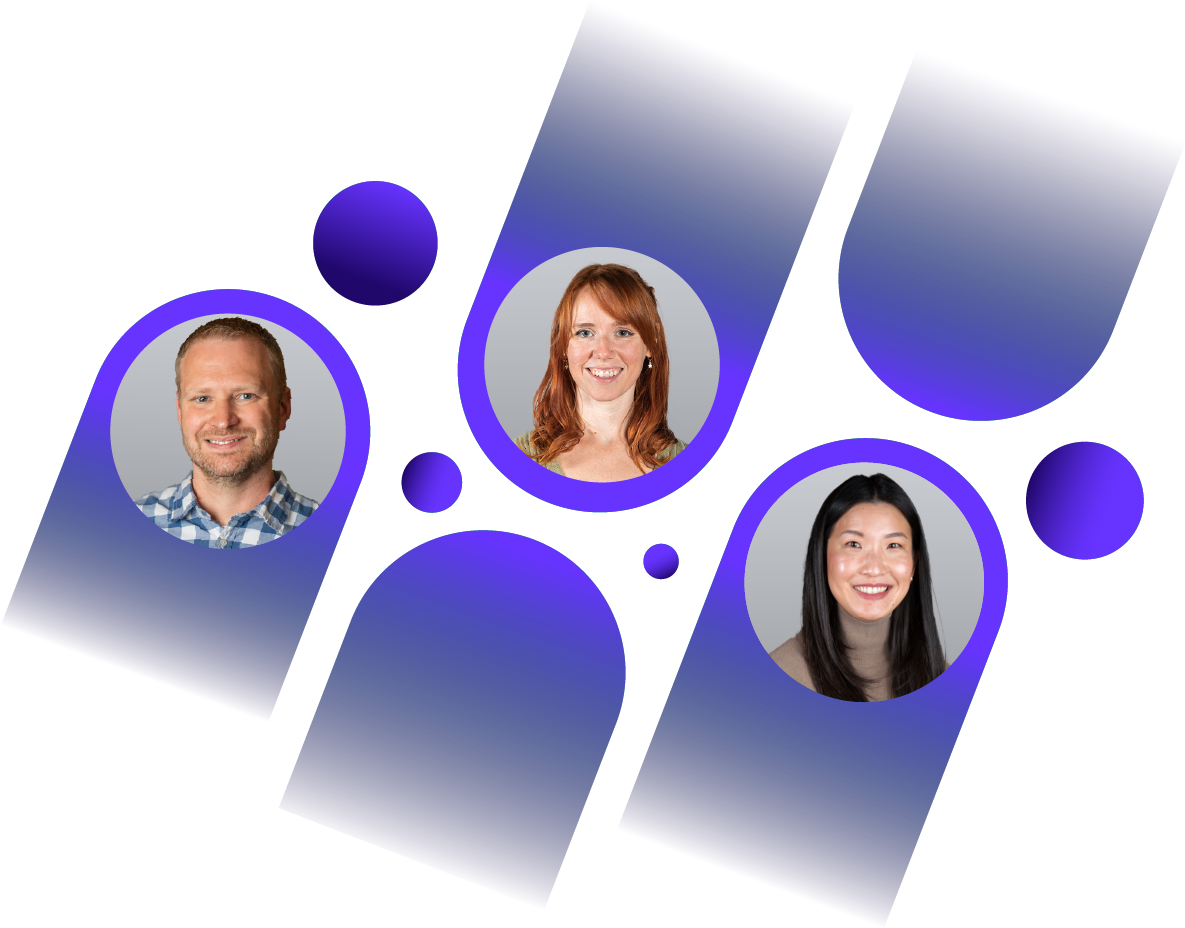
Founded in 1978, the Downtown Women’s Center (DWC) exists to end homelessness for women in the Greater Los Angeles area.
Services Used:
Founded in 1978, Downtown Women’s Center (DWC) exists to end homelessness for women in the Greater Los Angeles area. They achieve this through a variety of impactful initiatives and programs, including supporting women through permanent housing and community-based rapid re-housing, a robust health clinic that exclusively services women in the Skid Row community, a multi-faceted workforce development program and much more. In addition to all the direct services and programs they provide, DWC is also a national advocacy leader in raising awareness regarding women experiencing homelessness.
You can listen to the full, audio version our this case study below or keep scrolling for the text version.
Using Data to Increase Resources for Women
Data has played an integral role at DWC over the years. It informs virtually every decision they make, and they even have a dedicated focus on doing community-based research. A notable example of this research is the Women’s Needs Assessment that they developed in 2001. The goal behind this assessment was to home in on what women within the Skid Row community were experiencing, how they access resources, incidents of violence and more. The assessment occurs every three years, and in 2019, DWC expanded its scope to be city-wide – no small feat considering the population of LA alone is around four million people.
“This has been immensely helpful for Los Angeles to help develop strategies and programs that directly impact women. But we’re also working on getting unaccompanied women recognized statewide – unaccompanied women would be women that are seeking services without children or another dependent. As a group, they don’t have a lot of dedicated services. We know that roughly 1/3 of the homeless population in Los Angeles are women, but there is nowhere near 1/3 of the resources set aside for women.”
– Lorena Sanchez, Chief Development and Communication Officer, Downtown Women’s Center
Because the Women’s Needs Assessment has been so successful in LA, it’s since been replicated in cities like Washington, D.C. and Chicago. DWC also aims to expand their survey to all of Los Angeles County, more than doubling their census from LA alone. Point being, DWC is forward-thinking with research and advocacy, as well as the unique role data plays within those realms. In that same spirit, a chance encounter with a volunteer in 2020 led to even more impactful data work within their organization.
When Volunteers Meet Data
DWC employs an incredibly talented and dedicated staff to run their various programs, but volunteers also play a considerable role in DWC’s operations and overall mission. These volunteers serve in several different capacities, from volunteering at special events to DWC’s onsite café. Such as was the case with DWC volunteer and InterWorks Analytics Consultant Sarah Dorfman.
As part of the Downtown LA community, Sarah was passionate about lending her talents to such a worthy organization. The more Sarah got involved, the more DWC learned about her unique skillset. It wasn’t long until Sarah was looped in to help DWC’s Workforce Development Director Kindalle Brown on sprucing up their data trackers – a key tool in helping Workforce Development communicate the efficacy of their programs.
“My experience with data at DWC, specifically in the Workforce Development Department, was that we collected a lot of data, we collected a lot of numbers and performance metrics, and we didn’t necessarily know what that data was telling us.”
– Kindalle Brown, Workforce Development Director, Downtown Women’s Center
Sarah started out by participating in broad discussions with Kindalle and DWC Chief Development and Communication Officer Lorena Sanchez about the scope of their efforts as well as the data goals of DWC, looking to see what resources she might be able to bring. She was originally going to improve the trackers on her own time, but after discussion with InterWorks CEO Behfar Jahanshahi, the work was approved as a full-fledged pro bono project. What’s more, Sarah was able to bring in additional help from InterWorks Analytics Consultant Ben Calder and former InterWorks BI Intern John Moss, forming a dedicated team to overhaul their data trackers.
Upon kicking off the project, the InterWorks team found five to six different combinations of Google Sheets with different tabs in each one. The primary goal of the team was to consolidate these multiple workbooks into a single workbook with multiple tabs that would be uniformly understood within the Workforce Development department. The team made sure that each component of the workbook has a data dictionary where term definitions could reside. Additionally, the team built the workbook with tabs that could be manually input by Kindalle and her team as well as tabs that automatically summarize data and provide trend analysis. In addition to building out this new framework for the tracker, Sarah also dove deep into DWC’s data sources to deduplicate it where applicable and provided additional data quality checks in conjunction with DWC staff.
The New Workforce Development Tracker in Action
After consolidating their data and releasing a trial version of the new Workforce Development Tracker, it didn’t take long for Kindalle and her team to notice immediate results. For example, the Workforce Development department is required to submit quarterly reports on all their initiatives. Prior to the new tracker being released, submitting these reports was a bit of a hassle that required a lot of manual entry. What’s more, all that manual effort limited their ability to be proactive with their data efforts. The advent of the new tracker, even in its trial form, allowed Kindalle and other coordinators the ability to get their number in on time without the hassle.
“The clarity that the tracker InterWorks created for us gave us the information we needed, but also gave us the ability to see where we needed to focus and where things were dropping off and where we wanted to move, which was huge. The ease with which we’re able to look at our data and be able to tell a story has improved exponentially.”
– Kindalle Brown, Workforce Development Director, Downtown Women’s Center
Streamlining and optimization weren’t the only benefits of the new data tracker. One of the biggest advantages of spending less time on reporting is that the Workforce Development department can now spend more time doing the work they love. Additionally, being able to find clear answers quickly enables them to be more transparent within their organization and with supporters of DWC.
“When we’re able to turn around and communicate our impact, that just helps with funding and helps bring attention to women’s homelessness. I think it creates that kind of, hopefully, virtuous cycle where we’re continuing to demonstrate how our programs work, why they need to be supported and how we’re changing people’s lives by helping them at all these different points.”
– Lorena Sanchez, Chief Development and Communication Officer, Downtown Women’s Center
Expanding Outreach and Equity with Data
Now that data is up to date and easily accessible for the Workforce Development department, Kindalle and her team are now focusing on expanding their outreach programs as well as the number of women that they serve. Their LA Rise program is an excellent example of a program with significant reach that they’re now able to devote more time towards. Expanded reach isn’t the only priority they’re spending more time on. With a clearer window into demographic data, they’re placing more emphasis on becoming more equitable across all their services. Even before Kindalle and Lorena arrived at DWC, there existed the Equity Dashboard which analyzed metrics and strategies across every department at DWC with the goal of deepening those to make them more equitable.
“I think probably the most common thing that companies are doing is bringing in an expert to talk about implicit bias, which is great – we all need to do that at regular intervals – but I think when you apply data, it’s like you’re tying it to resources. For us, it’s still early days. We’re trying to figure out if we’re measuring the right things, but I think it’s a fantastic example of how data can drive systemic and social change.”
– Lorena Sanchez, Chief Development and Communication Officer, Downtown Women’s Center
Progress Involves Everyone
By simply taking a closer look at their data and leaning on the unique skills of staff like Kindalle and Lorena, as well as volunteers like Sarah and countless others, DWC has put themselves in a position of strength when it comes to understanding insights on the people they serve and acting on that information. From a broader perspective, DWC is simply a fantastic organization committed to uplifting an entire community of women – an organization that InterWorks is proud to be associated with. Of course, there’s always more work to be done, and DWC is always looking for those willing to help. If you’re in the LA area and want to get involved, there are many ways you can do so:
“We’re always seeking volunteers. The easiest examples are coming down and helping in the kitchen or donating gently used items […] Thinking about what you have to offer and approaching us with ideas is also great. And we understand that not everyone is able to give financially, but if you can, even as little as $5 or $10 a month goes a long way to maintain our financial sustainability. So, all of that is appreciated.”
– Lorena Sanchez, Chief Development and Communication Officer, Downtown Women’s Center
To get involved or learn more about DWC’s mission, visit their official website.

